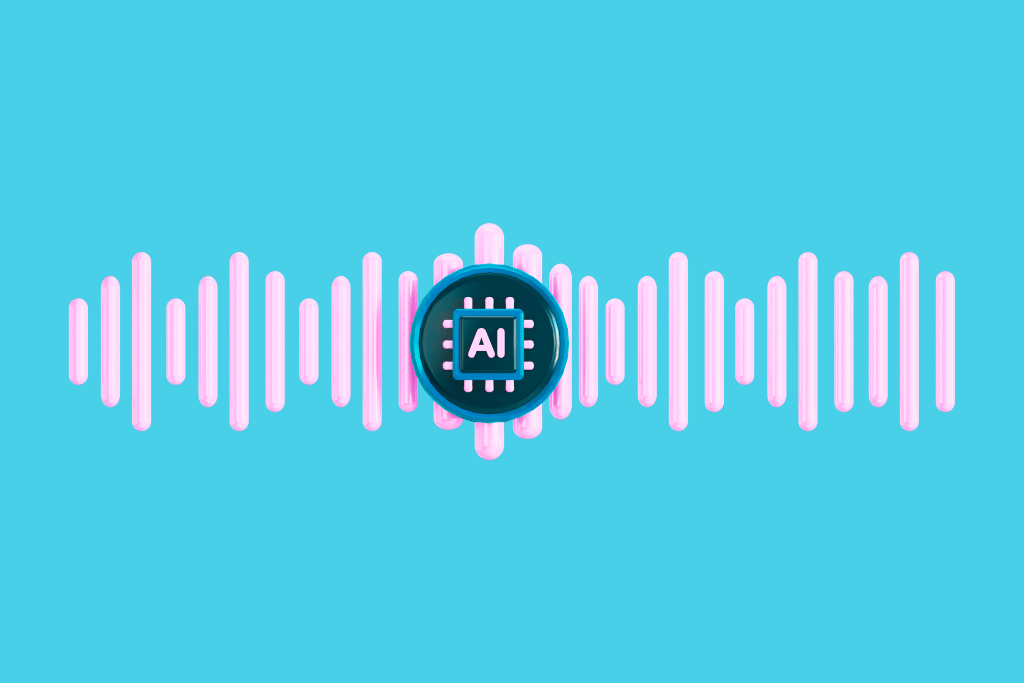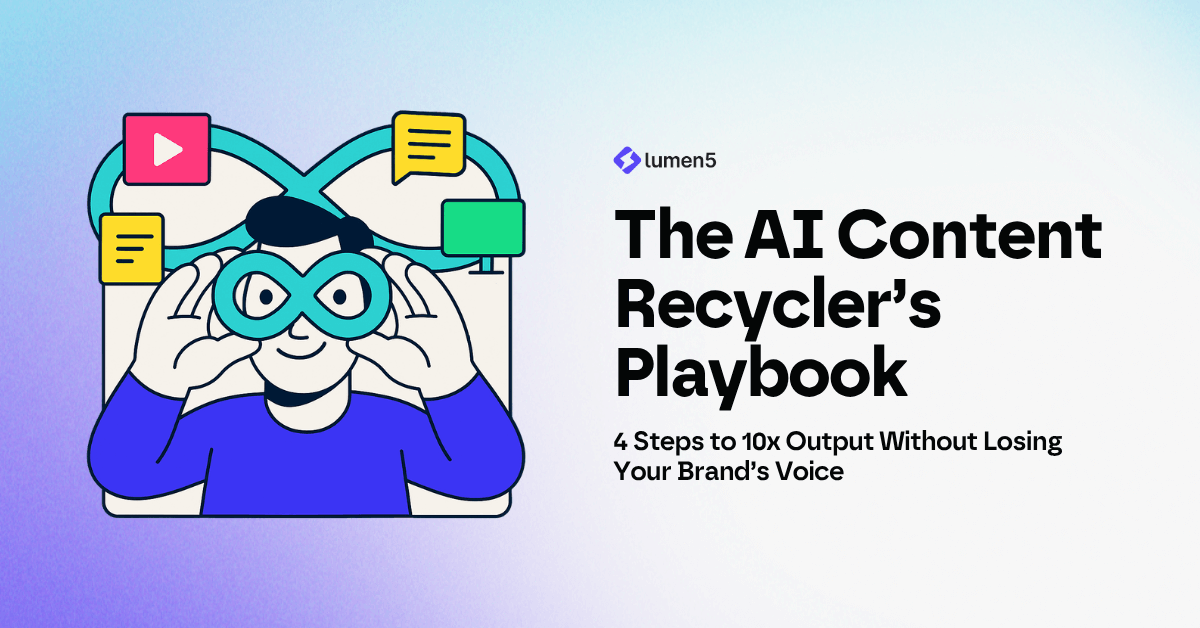
How Are AI Voices Made?
AI Voices are voiced originally by a voice actor, but today’s artificial intelligence (AI) voice generators are so good you’ve probably come across an AI voice without even knowing. The really good AI voices are so realistic that other than famous voice actors/actresses or narrators like David Attenborough, or if you watch anime, Veronica Taylor or Sarah Natochenny AKA Ash Ketchum, they have become indistinguishable from human voices.
But AI or not, voices for videos have become a tool in every marketer’s toolbox. AI voices are transforming digital media and multiple industries everywhere you look and hear.
Companies like our partner, Elevenlabs “use artificial intelligence to convert written text into spoken words, closely resembling human speech across a variety of accents and languages: English, French, Arabic, Mandarin, Spanish, Japanese, and more.”
Why Do I Need an AI Voice for Marketing Videos?
Do you know the difference between AI stock voices, custom voices, or cloned voices? Whether it’s stock, custom, or cloned – a voice is your brand. A strong and consistent brand does many things:
- attracts and retains your audience while building trust and credibility
- builds brand recognition and memorability with audiences, increasing confidence in your brand
- can increase revenue by 20% due to consistent branding
- answers the demand for brand content by marketers
An inconsistent brand experience makes it harder to build brand recognition and more challenging to connect with audiences. However, including a voice can change that and within the few seconds you have to make an impression, a voice can help make the instant decision for a viewer to stay or leave.
What are the differences between AI Stock Voices vs. Custom Voices vs. Cloned Voices? Let’s compare them all!
AI Stock Voices: Accessible and Versatile
Stock voices are used daily and are very accessible. They are used where you might not realize like YouTube videos and video games. They’re even built into apps like TikTok or CapCut, enabling creators to create content like “Day in the Life” videos without having to record their own voices, adding humour or satire easily.
When picking an AI stock voice, the choice is yours! Picking a voice that suits the tone of content can help engage your audience and elevate the mood. AI voices are used widely in many industries, such as:
- E-learning: Helps with retaining engagement and attention spans, while also offering a clear narration that can increase information retention rates. A voiceover can also make e-learning videos more accessible for all.
- Recaps and Compilations: A great way to repurpose content that needs that extra narration to cover highlights or key takeaways in a timely manner.
- Social Media: Content creators can use AI voices for voiceover enhanced engagement and narration for vlogs like “Day in the Life” or “Come work my 9 to 5.”
AI Custom Voices: Unique and Brand-Specific
Custom voices are a great alternative to stock voices because they are one of a kind. This can drive your consistent brand identity forward.
Because of advances in the AI voice industry, custom AI voices are undetectable from a human voice. For businesses, this is huge as it can majorly transform content creation processes, avoiding the bottleneck in production and recording.
When recording, the consistency of speech can be hard. However, it is crucial. Whether it’s talking pace, interruption from background noises, or audio artifacts that can be heard, custom voices eliminate these inconsistencies while still expressing your brand’s unique personality to a tee.
The best thing about a custom voice? There is no other like it on the market! Custom voices are the perfect choice for enterprises or global teams looking to build their brand beyond text and enter the voice-driven world at a competitive pace, unlocking real-time messaging.
Custom voices can be used in multiple industries for enterprises. Some use cases we have seen:
Voice Assistants: There is only one Alexa and one Siri (well, multiple because there are different accents and genders for Siri), but their voices are easily recognizable and part of these large enterprise brands.
Localized Content: Enterprise teams are no longer blocked by language barriers – both understanding and speaking. Creating the same video in multiple languages to reach global audiences while maintaining your brand’s identity is now possible.
Digital Marketing: Integrate your custom voice into ads, social media, videos, testimonials, and podcasts to create a recognizable and holistic brand experience.
Online Education: Audio content significantly boosts comprehension—with hearing accounting for 60-75% of learning comprehension compared to visual cues at 25-40% — a custom voice is a tool with enormous branding potential in the education sector.
AI Cloned Voices: Realistic and Personalized
Voice cloning is an extremely viable option for any creator – a one-person team or a 100+ global-sized team. A cloned voice is a synthetic copy of a human’s voice that is reproduced after analyzing multiple voice recordings or soundbites.
According to Elevenlabs, “Voice cloning uses deep learning to analyze a person’s voice, capturing nuances like pitch, accent, and speech patterns… At its core, it involves analyzing the sound patterns of a specific voice and then reproducing them so accurately that the cloned voice is nearly indistinguishable from the original.”
It can eliminate bottlenecks in the content creation industry, however there are concerns regarding usage and permission. Despite these concerns, if used correctly and with approval, brands could unlock the usage of AI-cloned voices beyond marketing initiatives only.
Voice cloning has a wide range of applications across various industries. Here are some of the key use cases:
Entertainment: For movies, video games, and animations, voice actors and actresses no longer need to be present. This could cut down studio and transportation costs. And also, cut down time spent recording and cutting snippets.
Training and Development: Voice cloning enables the customization of training videos that feature a familiar voice, maintaining emotional connections and building trust, while increasing video creation rates. Businesses can also easily update training videos as often as needed, a huge bottleneck for many.
Accessibility: For individuals with speech impairments or those who have lost their voice due to illness, voice cloning technology opens a new avenue for voice recreation and communicating with their voice.
Customer Service: Voice cloning can create realistic and interactive voice responses. It can feel more personalized and interactive, rather than the robotic-like responses.
Audiobooks and Podcasts: Voice cloning for authors can enable the creation of audiobooks in the author’s voice. Imagine JRR Tolkien reading Lord of the Rings to you before bed with the characters’ voices and his cadence in mind. Podcasters could also produce content without a recording studio or mic set up easily.
Historical and Educational Purposes: Voice cloning can be used to recreate the voices of historical figures for educational content, documentaries, or museum exhibits, providing an audio experience and breathing new life into historical moments.
AI voices are changing the way we create and consume content. Whether you’re looking to boost your brand’s recognition with a custom voice, create personalized experiences with cloned voices, or easily enhance your content with stock voices, understanding the differences and applications of each type is crucial.
Ready to elevate your video content with the power of AI voices? Book a demo with Lumen5 today and discover how to create your own custom AI voice or clone an existing voice to transform your video strategy. Let’s make your brand’s voice truly unforgettable!
Book a Demo with us now and start your journey towards creating impactful, engaging video content with AI voices.





